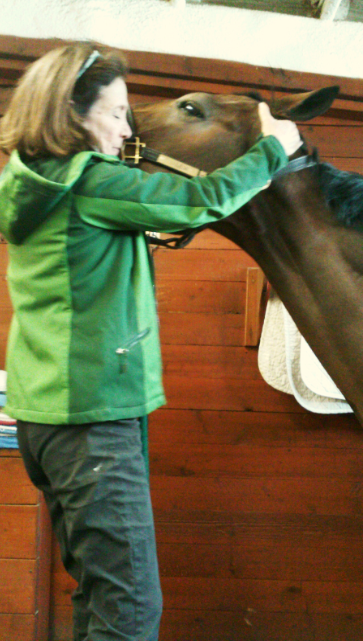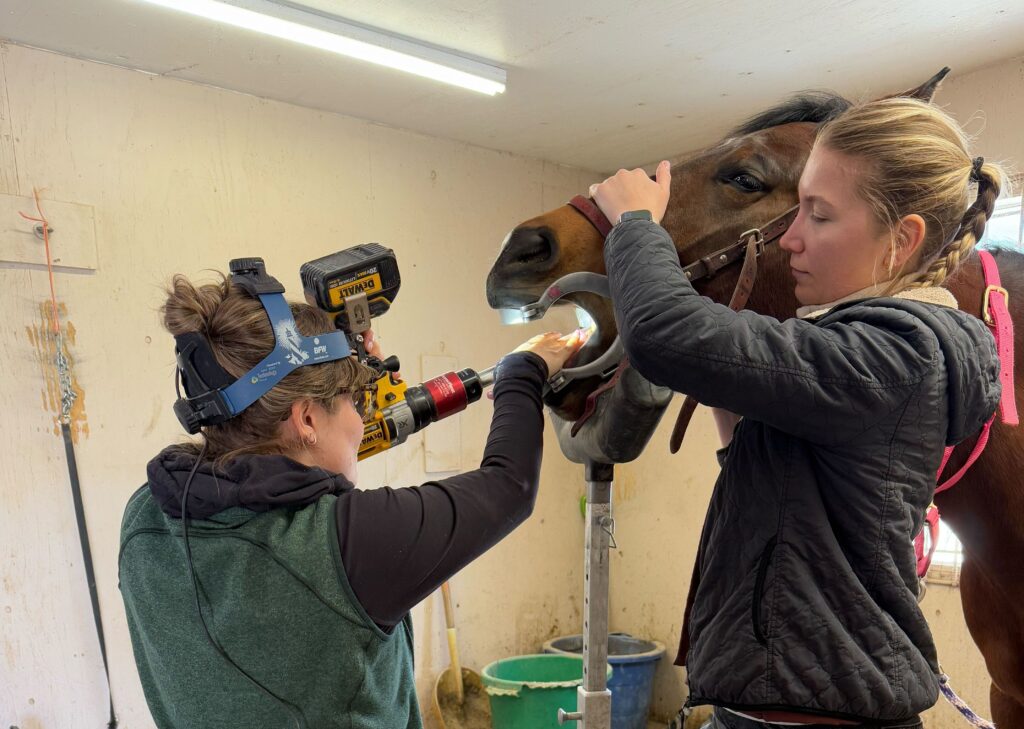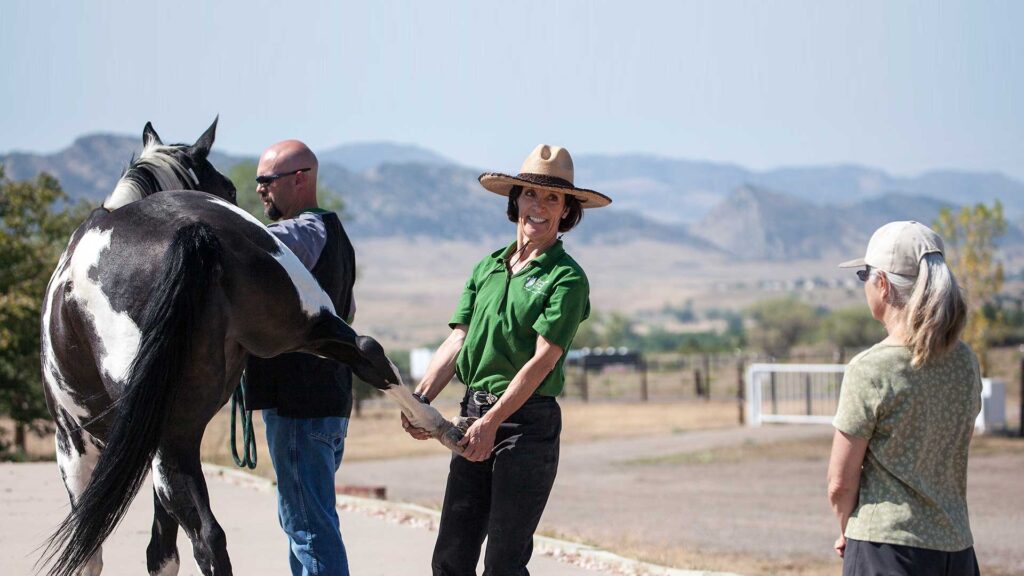Regular general physical exams are a vital part of keeping your horse healthy and thriving. These comprehensive check-ups allow our equine veterinarians to assess your horse’s overall well-being, catch potential health issues early, and provide tailored care to ensure they stay in peak condition. From evaluating vital signs like heart rate and respiratory function to checking for signs of lameness, dental issues, or nutritional imbalances, physical exams help identify concerns before they become serious problems.
The brightness of a horse’s eye, their body posture, and their appreciation of the activities around them are all key indicators of a healthy body. These subtle signs are best noticed by your veterinarian during a yearly exam. A general physical exam gives your veterinarian a clear picture of your horse’s overall health and happiness, ensuring they are not only physically sound but also mentally engaged and content.
Preventive care is especially important for horses, as they often mask signs of illness or discomfort. A general physical exam provides peace of mind, knowing your horse is in good health, and allows us to address any emerging issues promptly. Whether your horse is a competitive athlete, a beloved companion, or a working partner, these exams are key to maintaining their performance, comfort, and longevity.
At Colorado Equine Clinic, we’re committed to partnering with you to keep your horse happy and healthy. Don’t wait for signs of trouble—schedule a general physical exam today and give your horse the care they deserve. Together, we can ensure they stay strong, sound, and ready for whatever lies ahead!



